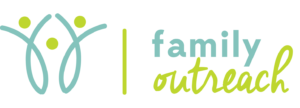About
The ABA Team at Family Outreach are Board Certified Behavior Analysts and Registered Behavior Technicians dedicated to improving the lives of individuals diagnosed with Autism Spectrum Disorder (ASD) across a range of severity levels.
Our process involves Applied Behavioral Analysis (ABA), a research-backed approach that focuses on teaching new skills and working to change challenging behaviors in areas like communication, socialization and adaptive skills.
ABA is endorsed by multiple organizations, including the United States Surgeon General, National Institute of Mental Health and the American Psychological Association. ABA is the primary treatment option for those diagnosed with autism, which aims to support each person through personalized, fun and motivational learning.
Contact
Bradley Tiefenthaler, Interim ABA Service Manager & Licensed Behavior Analyst (LBA)
abainfo@familyoutreach.org

Learn more about Applied Behavioral Analysis
Who We Serve
Family Outreach provides services to individuals diagnosed with Autism Spectrum Disorder. Our services extend to clinics, homes, community settings, and via telehealth–ensuring flexibility and accessibility.
Family Outreach believes in a collaborative, family-centered approach. We work closely with families, educators and other professionals to ensure the best outcomes for our clients. Ongoing family involvement in planning and implementation of the treatment plan is essential. A parent or identified caregiver will be asked to be available and accessible during ABA intervention.
ABA works by breaking down tasks into manageable steps and providing positive reinforcement. This method can help increase skills like language, motor abilities, social skills and independent living, while reducing disruptive behaviors.
ABA Services
Family Outreach offers a variety of ABA services tailored to meet the unique needs of each family:
- Individualized Assessment and Treatment Plans: We assess each person’s strengths and challenges to create personalized treatment plans with measurable goals.
- Skill Development: We teach communication, social interaction, and self-care skills to empower individuals and integrate them into their communities.
- Behavior Reduction: We decrease challenging behaviors through individualized strategies.
- Parent and Caregiver Training: We equip caregivers with the tools needed to reinforce positive behaviors at home.
- School and Community Support: Our services extend to schools and community settings for a consistent and comprehensive approach.
Getting Started with ABA Services
Begin the referral process, or contact us to ask a question.
ReferralsContact UsFrequently Asked Questions
What is ABA’s philosophy?
It is our job as ABA practitioners to make sure our learners are motivated and having fun, which is how children learn best. Intervention appointments are determined according to the best time in the day or week for the individual child to learn the necessary skill. Challenges are offered slowly and carefully to produce meaningful behavior changes. Our goal is to replace challenging behaviors with more socially acceptable ones, as well as build on foundational skills like functional communication, social skills and adaptive living skills.
What are the ASD severity ratings you work with?
Level 1: “Requiring support” – Individuals with this level of severity have difficulty initiating social interactions. They may exhibit unusual or unsuccessful responses to social advances made by others, and may seem to have decreased interest in social interactions. Additionally, repetitive behaviors may interfere with daily functioning. These individuals may have some difficulty redirecting from their fixed interests.
Level 2: “Requiring substantial support” – Individuals with this level of severity exhibit marked delays in verbal and non-verbal communication. Individuals have limited interest or ability to initiate social interactions and have difficulty forming social relationships with others, even with support in place. These individuals’ restricted interests and repetitive behaviors are obvious to the casual observer and can interfere with functioning in a variety of contexts. High levels of distress or frustration may occur when interests and/or behaviors are interrupted.
Level 3: “Requiring very substantial support” – Individuals with this level of severity exhibit severe impairment in daily functioning. These individuals show extremely limited initiation of social interaction and minimal response to social overtures by others and may be extremely limited in verbal communication abilities. Preoccupations, fixed rituals and/or repetitive behaviors greatly interfere with daily functioning and make it difficult for the individual to cope with change. It is very difficult to redirect this person from fixated interests.
Can you explain the credentials of your practitioners?
Board Certified Behavior Analyst® (BCBA®) is a graduate-level certification in behavior analysis. Professionals certified as BCBA’s are independent practitioners who provide behavior-analytic services and supervise Board Certified Behavior Analysts® (BCaBAs®) or Registered Behavior Technicians® (RBTs®).
Board Certified Behavior Analyst® (BCaBA®) is an undergraduate-level certification in behavior analysis. These individuals provide behavior-analytic services under the supervision of a BCBA®.
Registered Behavior Technicians® (RBT®) is a paraprofessional certificated in behavior analysis. RBTs assist in delivering behavior-analytic services and practice under the direction and close supervision of an RBT Supervisor and/or an RBT Requirements Coordinator, who is responsible for all work an RBT performs.

